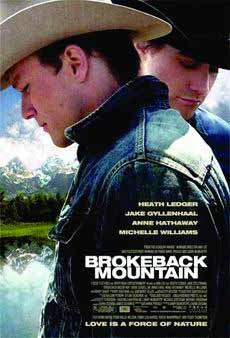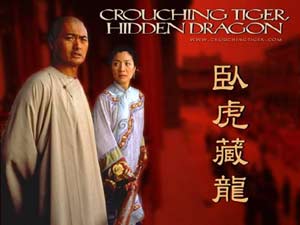| Tools: Save | Print | E-mail | Most Read |
| Ang Lee: Blending East and West |
| Adjust font size: |
Ang Lee, the director of the much talked-about cowboy love story
The movie has proved a hit with American movie-goers, attracted by the love story's subtle nuances and the nostalgic portrayal of the old West. As a foreign movie director, it hasn't been easy for Ang Lee to get this far. Lee was born in After graduation, Ang Lee pursued a career in the Writing screenplays for directors was routine for Lee during those early years. His wife took on all the responsibility of making ends meet for the family. Years of being a house-husband made Lee a mild person with excellent cooking skills. His experiences later helped serve as subject matter for his movies.
1990 saw a turning point in Lee's career. He entered two scripts in an official competition in Pushing Hands is a comedy-drama about generational and cultural differences. Its central metaphor is the father's Tai-Chi technique of Pushing Hands. The culture clash evident when the father goes to live with his son in Pushing Hands was a big hit that also attracted considerable attention from film critics. The film earned Lee eight nominations in Following this success, Lee decided to enter more sensitive territory. The Wedding Banquet, released in 1993, revolves around the marriage of a gay man and a Chinese immigrant arranged to please the man's elderly parents. The film uses the plot structure of an old
The third movie in Lee's trilogy of Father Knows Best films is Eat Drink Man Woman, released in 1994. It tells the story of a famous chef in A seemingly unlikely choice to film the screen adaptation of a classic British novel, Lee was then hired to direct Sense and Sensibility. It was his first fully English-language movie. Adapted from Jane Austen's classic and starring Emma Thompson, the movie earned rave reviews. In many ways, it has a lot in common with his earlier productions, which focus on miscommunication and the effect of a patriarch on his family. Sense and Sensibility received seven Oscar nominations, and won the Golden Bear Award at the Berlin Film Festival. Lee's 1997 movie The Ice Storm is an exploration of the American family in the 1970s. It revolves around a father watching the collapse of a patriarchal society. The picture looks at events from the perspectives of both the adults and the teenagers, paying particular attention to how interpersonal codes are inverted. The superb cast lent the movie as much emotional depth as you can find in a modern Greek tragedy. Lee next undertook what is perhaps his most ambitious movie Ride With the Devil. The production is an action-packed epic set in the post-Civil War-era in
Lee's next film, Crouching Tiger, Hidden Dragon, is considered one of his greatest works. The movie is an exciting cocktail of different genres --- historical romance, martial arts and the classic American Western --- that has had massive audience appeal. The picture caused an international sensation and earned ten Academy Award nominations. The four trophies he eventually won includes an Oscar for Best Foreign Language Film. This makes Crouching Tiger, Hidden Dragon the first Asian film to win the Oscar. It is also the highest grossing foreign-language movie ever released in In 2003, Ang Lee made a radical switch of genre with the sci-fi picture The Hulk. The movie reflects the other side of the mild director, a side full of imagination and creativity. Lee explained his thoughts on this change. Ang Lee said: "The biggest attraction for an audience is to have something really fresh. Once you lose that, no one will appreciate your work." Lee's latest creation is another attempt to keep things fresh. (CCTV March 14, 2006) |
| Tools: Save | Print | E-mail | Most Read |
 |
| Related Stories |
|
|
Product Directory China Search |
Country Search Hot Buys |

